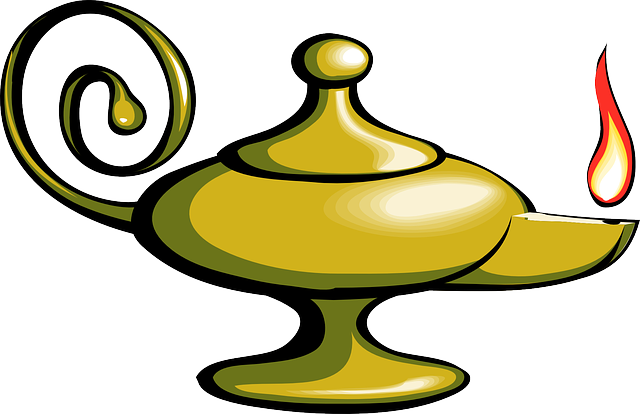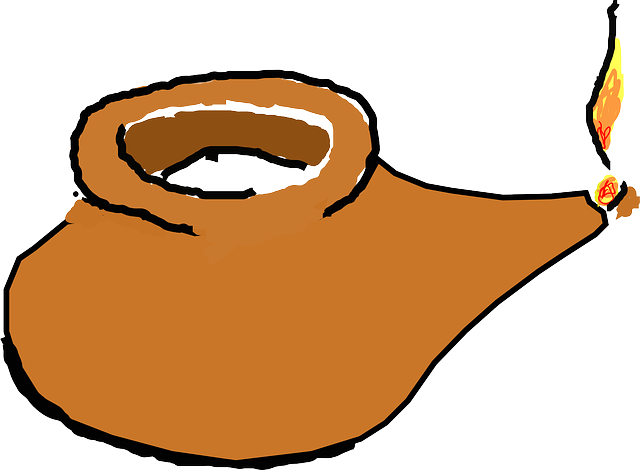Intro
What must we do to prepare for the Second Coming? Must we research prophecy and draw up timelines? Should we frantically lobby against political proposals which might possibly hasten the end? Or is there something spiritual that we should be looking at in ourselves?
Purpose
How to prepare for Christ’s return.
Outline
We will examine the Parable of the Ten Virgins and what it says about olive oil, light, readiness, God knowing us and watchfulness.
Olive Oil
 The Parable of the Ten Virgins is partly about olive oil (Matthew 25:1-13). It lit lamps, fueling the light of good deeds causing others to glorify God (Matthew 5:15-16). It was an offering and fueled a continual light in the tabernacle and the temple (Numbers 4:16). It was used to bake holy bread and the main ingredient in holy anointing oil (Exodus 30:22-31). Olive oil was used in numerous sacrifices. It was used for the healing of the sick (James 5:14) and symbolizes the Holy Spirit (1 Samuel 16:13). The five foolish virgins gave an inferior offering, with no fuel for their Christian light they were neglecting good deeds which would include the care of the sick and neglected spiritual things. Blessed is the one who remains awake and spiritually clothed (Revelation 16:15).
The Parable of the Ten Virgins is partly about olive oil (Matthew 25:1-13). It lit lamps, fueling the light of good deeds causing others to glorify God (Matthew 5:15-16). It was an offering and fueled a continual light in the tabernacle and the temple (Numbers 4:16). It was used to bake holy bread and the main ingredient in holy anointing oil (Exodus 30:22-31). Olive oil was used in numerous sacrifices. It was used for the healing of the sick (James 5:14) and symbolizes the Holy Spirit (1 Samuel 16:13). The five foolish virgins gave an inferior offering, with no fuel for their Christian light they were neglecting good deeds which would include the care of the sick and neglected spiritual things. Blessed is the one who remains awake and spiritually clothed (Revelation 16:15).
The Virgins
 A wedding tradition at this time in history was for the bridegroom to prepare a home by building an addition onto his parents’ home or a free-standing home. It could take a year of preparation, but when the bridegroom was ready, he came for his bride. The scenario in Matthew 25:1-13 is that the bridegroom was ready at midnight on a certain day. The virgins were perhaps what we would call bridesmaids, who were to light the way with their lamps as the bridegroom took his bride in procession to the place where they were to be married. The picture is of 5 smart girls who were prepared and 5 silly girls who were not. The bridegroom has prepared to be with the woman he passionately loves, the Church. Who has their lamps ready to join the wedding procession?
A wedding tradition at this time in history was for the bridegroom to prepare a home by building an addition onto his parents’ home or a free-standing home. It could take a year of preparation, but when the bridegroom was ready, he came for his bride. The scenario in Matthew 25:1-13 is that the bridegroom was ready at midnight on a certain day. The virgins were perhaps what we would call bridesmaids, who were to light the way with their lamps as the bridegroom took his bride in procession to the place where they were to be married. The picture is of 5 smart girls who were prepared and 5 silly girls who were not. The bridegroom has prepared to be with the woman he passionately loves, the Church. Who has their lamps ready to join the wedding procession?
The Clock is Ticking
 In the Parable of the Bridesmaids (Matthew 25:1-13) there is a two-fold time problem. On the one hand we don’t know when Jesus will return, but on the other hand the clock is ticking. How do we deal with an expected Jesus while we do not know when he will return? A particular Rabbi was known for saying that we should repent the day before we die. When his students objected that we don’t know when that day would be, he would simply reply, “All the more reasons to repent today, lest you die tomorrow.” How long will we put off necessary spiritual preparations for the kingdom of heaven? How long will we persist in unrepentant sins, hoping to repent later? How long before we act upon the Gospel message by approaching the throne of mercy in heartfelt gratitude?
In the Parable of the Bridesmaids (Matthew 25:1-13) there is a two-fold time problem. On the one hand we don’t know when Jesus will return, but on the other hand the clock is ticking. How do we deal with an expected Jesus while we do not know when he will return? A particular Rabbi was known for saying that we should repent the day before we die. When his students objected that we don’t know when that day would be, he would simply reply, “All the more reasons to repent today, lest you die tomorrow.” How long will we put off necessary spiritual preparations for the kingdom of heaven? How long will we persist in unrepentant sins, hoping to repent later? How long before we act upon the Gospel message by approaching the throne of mercy in heartfelt gratitude?
Preparedness
 Emergency preparedness is vital if in the case of a real calamity, we are to survive. In earthquake zones it means building structures that are suited. In tornado zones it means either building tornado proof structures or underground household shelters. In hurricane zones it means stronger building codes, evacuation procedures and efficient response teams. In wildfire zones it means evacuation procedures, homes that are fire resistant and/or contain fireproof shelters. We need preparedness for other things as well. Financial preparedness means being ready for health crises, unemployment and old age. Educational preparedness means that we are ready for the needs of the job market so that we can feed our families. In Matthew 25:1-13 Jesus also addressed the idea of preparedness. He will return in power and when he does only those who are ready will be welcomed.
Emergency preparedness is vital if in the case of a real calamity, we are to survive. In earthquake zones it means building structures that are suited. In tornado zones it means either building tornado proof structures or underground household shelters. In hurricane zones it means stronger building codes, evacuation procedures and efficient response teams. In wildfire zones it means evacuation procedures, homes that are fire resistant and/or contain fireproof shelters. We need preparedness for other things as well. Financial preparedness means being ready for health crises, unemployment and old age. Educational preparedness means that we are ready for the needs of the job market so that we can feed our families. In Matthew 25:1-13 Jesus also addressed the idea of preparedness. He will return in power and when he does only those who are ready will be welcomed.
Not Left Behind but Left Out
 What an offense is the the Parable of the Bridesmaids in Matthew 25:1-13! People are left out of the wedding because they did not have any oil. To make matters worse, the bridegroom even tells the latecomers that he does not know them. Perhaps the offense is there because we don’t understand the intent of the parable. Spiritual preparedness is not something that can be delegated to someone else, just as the empty bridesmaids could not simply borrow oil from another. We can only prepare for ourselves. We cannot even prepare for those we love the most. We can encourage them and set them an example, but they are responsible for their own relationship with Christ, for him knowing them. How many of us are not spiritually prepared but have been thinking we could borrow oil from someone else?
What an offense is the the Parable of the Bridesmaids in Matthew 25:1-13! People are left out of the wedding because they did not have any oil. To make matters worse, the bridegroom even tells the latecomers that he does not know them. Perhaps the offense is there because we don’t understand the intent of the parable. Spiritual preparedness is not something that can be delegated to someone else, just as the empty bridesmaids could not simply borrow oil from another. We can only prepare for ourselves. We cannot even prepare for those we love the most. We can encourage them and set them an example, but they are responsible for their own relationship with Christ, for him knowing them. How many of us are not spiritually prepared but have been thinking we could borrow oil from someone else?
Prediction or Preparation
 Which science is more important in surviving an earthquake, prediction or preparation? If we were able to predict with certainty that an earthquake would come to Los Angeles, California mid afternoon tomorrow, how many lives might be saved? Perhaps a number would evacuate the city. Many may not. On the other hand, if we were able to construct buildings, utilities and distribution methods that could withstand the strongest earthquakes, many more could be saved? Of course we cannot yet predict earthquakes and neither can we predict the day or the hour of Christ’s return. Many false prophets have predicted the date of his return perhaps every generation for the past 2,000 years. Few have admitted their error. They failed to understand the Bible. Many scriptures including Matthew 25:1-13 teach that such prediction is fruitless but preparation is vital.
Which science is more important in surviving an earthquake, prediction or preparation? If we were able to predict with certainty that an earthquake would come to Los Angeles, California mid afternoon tomorrow, how many lives might be saved? Perhaps a number would evacuate the city. Many may not. On the other hand, if we were able to construct buildings, utilities and distribution methods that could withstand the strongest earthquakes, many more could be saved? Of course we cannot yet predict earthquakes and neither can we predict the day or the hour of Christ’s return. Many false prophets have predicted the date of his return perhaps every generation for the past 2,000 years. Few have admitted their error. They failed to understand the Bible. Many scriptures including Matthew 25:1-13 teach that such prediction is fruitless but preparation is vital.
While we Wait
 Part of Christianity is a waiting game. We are waiting for Jesus to return. While we wait, what should we be doing? Matthew 25:1-13 begins to address this question. The two imperatives for us in this text are that we should make sure that we have enough oil and that Jesus knows us. What is the oil? Is it the oil of joy (Hebrews 1:9), the oil of healing (James 5:14) or the Holy Spirit (1 Samuel 16:13)? Certainly the Holy Spirit plays a central role in the life of any Christian. Luther believed it pictures faith. Does the end of the chapter provide an answer in context? It encourages good works of charity towards the hungry, thirsty, foreigners, unclothed, sick and imprisoned; the light of good deeds is sustained by the oil (Matthew 5:13-16).
Part of Christianity is a waiting game. We are waiting for Jesus to return. While we wait, what should we be doing? Matthew 25:1-13 begins to address this question. The two imperatives for us in this text are that we should make sure that we have enough oil and that Jesus knows us. What is the oil? Is it the oil of joy (Hebrews 1:9), the oil of healing (James 5:14) or the Holy Spirit (1 Samuel 16:13)? Certainly the Holy Spirit plays a central role in the life of any Christian. Luther believed it pictures faith. Does the end of the chapter provide an answer in context? It encourages good works of charity towards the hungry, thirsty, foreigners, unclothed, sick and imprisoned; the light of good deeds is sustained by the oil (Matthew 5:13-16).
Missing the Full Gospel
 The Gospel involves getting to know Christ and becoming a shining light. What is that light? It is good works (Matthew 5:13-16). Certainly acts of piety (praying, Bible reading, church attendance, good morality, etc.) are important, but is that all of good works? How important are acts of charity to the Gospel? A complete explanation of what good works means is a part of the Gospel that we can easily miss. Matthew 25:1-13 begins to address that question, but it is more fully answered at the end of Matthew 25. We’ll discuss that another time. For now, let’s discuss the importance of letting our light shine completely. Defining good works as acts of piety alone is incomplete. We have four Gospels to reveal more completely what Jesus taught so that we don’t miss the fullness of the Gospel.
The Gospel involves getting to know Christ and becoming a shining light. What is that light? It is good works (Matthew 5:13-16). Certainly acts of piety (praying, Bible reading, church attendance, good morality, etc.) are important, but is that all of good works? How important are acts of charity to the Gospel? A complete explanation of what good works means is a part of the Gospel that we can easily miss. Matthew 25:1-13 begins to address that question, but it is more fully answered at the end of Matthew 25. We’ll discuss that another time. For now, let’s discuss the importance of letting our light shine completely. Defining good works as acts of piety alone is incomplete. We have four Gospels to reveal more completely what Jesus taught so that we don’t miss the fullness of the Gospel.
Orthodoxy without Orthopraxy is Hypocrisy
 Can we teach an authentic Christian gospel without living an authentic Christian life? In theological terms must not orthodoxy (right teaching) include orthopraxy (right living)? In Matthew 25:1-13 Jesus encouraged us to DO something, to buy oil for our lamps rather than just sit around waiting for a heavenly oil delivery. What does it mean to buy this spiritual oil? Jesus divided what Christians DO (orthopraxy) into two areas: loving God and loving our neighbor. In practice, love for God is incomplete without love for neighbor. Acts of piety like weekly worship and daily prayers are one way to actively love God. Acts of mercy like feeding the poor are one way to actively love our neighbors. Can right teaching and right practice be separated? Jesus told the Pharisees that their orthodoxy without orthopraxy was hypocrisy (Matthew 23:1-12).
Can we teach an authentic Christian gospel without living an authentic Christian life? In theological terms must not orthodoxy (right teaching) include orthopraxy (right living)? In Matthew 25:1-13 Jesus encouraged us to DO something, to buy oil for our lamps rather than just sit around waiting for a heavenly oil delivery. What does it mean to buy this spiritual oil? Jesus divided what Christians DO (orthopraxy) into two areas: loving God and loving our neighbor. In practice, love for God is incomplete without love for neighbor. Acts of piety like weekly worship and daily prayers are one way to actively love God. Acts of mercy like feeding the poor are one way to actively love our neighbors. Can right teaching and right practice be separated? Jesus told the Pharisees that their orthodoxy without orthopraxy was hypocrisy (Matthew 23:1-12).
I Know You Not
 In Matthew 25:1-13 Jesus told the lazy bridesmaids, “I know you not.” It is a shocking statement to believers! If Jesus does not know us what can we do? People get to know each other by spending time with each other. Do we make every effort to know God and allow him to know us? What are some ways that we can “buy oil” and allow God to get to know us? When people spend time together, they talk, listen and do things together. Many Christians pray, read the Bible and meditate on it. But the end of the same chapter shows that Jesus is also hungry, thirsty, a foreigner, unclothed, sick and imprisoned. Do we know Jesus by serving the needy? Where is Jesus in our community? Are we with him allowing him to get to know us?
In Matthew 25:1-13 Jesus told the lazy bridesmaids, “I know you not.” It is a shocking statement to believers! If Jesus does not know us what can we do? People get to know each other by spending time with each other. Do we make every effort to know God and allow him to know us? What are some ways that we can “buy oil” and allow God to get to know us? When people spend time together, they talk, listen and do things together. Many Christians pray, read the Bible and meditate on it. But the end of the same chapter shows that Jesus is also hungry, thirsty, a foreigner, unclothed, sick and imprisoned. Do we know Jesus by serving the needy? Where is Jesus in our community? Are we with him allowing him to get to know us?
God Knowing Us
 The Greatest Commandment of all is the most important universal principle and is found in most religions. It is the command to love, and covers two important areas, we are to love God and love neighbor. Rick Warren reworded these great principles into worship and ministry. John Wesley and others reworded them into acts of piety and acts of mercy. Such good works are the light of the world that Jesus spoke of in the Sermon on the Mount. In Matthew 25:1-13 Jesus began a much deeper discussion, expanding the Great Commandments. When we consider acts of love for God we also need to consider another very important question, does God know us? How does God get to know us except as we take time to pray? Knowing means a personal relationship. Knowing means time spent with one another.
The Greatest Commandment of all is the most important universal principle and is found in most religions. It is the command to love, and covers two important areas, we are to love God and love neighbor. Rick Warren reworded these great principles into worship and ministry. John Wesley and others reworded them into acts of piety and acts of mercy. Such good works are the light of the world that Jesus spoke of in the Sermon on the Mount. In Matthew 25:1-13 Jesus began a much deeper discussion, expanding the Great Commandments. When we consider acts of love for God we also need to consider another very important question, does God know us? How does God get to know us except as we take time to pray? Knowing means a personal relationship. Knowing means time spent with one another.
Keep Watch
 Does keeping watch mean to frantically watch world events worried about every terrorist plot or rumor of war, to lack sleep and be constantly on alert for potentially fulfilled prophecies? Such an interpretation seems to contradict the context of Matthew’s sleeping virgins (Matthew 25:1-13). Can we safely follow Jesus’ suggestion to rest or Sabbath in him (Matthew 11:28)? The virgins in the parable are admonished to keep oil in their lamps not be “arisen” or constantly awake as a word-study ignoring the context might imply. Matthew’s account of keeping watch does not seem imply a restlessness, but being ready even while we rest in Christ. The spiritual preparation in this parable implies an individual duty that nobody else can do for us. It is a readiness that involves knowing God, or more precisely, him knowing us, and readiness.
Does keeping watch mean to frantically watch world events worried about every terrorist plot or rumor of war, to lack sleep and be constantly on alert for potentially fulfilled prophecies? Such an interpretation seems to contradict the context of Matthew’s sleeping virgins (Matthew 25:1-13). Can we safely follow Jesus’ suggestion to rest or Sabbath in him (Matthew 11:28)? The virgins in the parable are admonished to keep oil in their lamps not be “arisen” or constantly awake as a word-study ignoring the context might imply. Matthew’s account of keeping watch does not seem imply a restlessness, but being ready even while we rest in Christ. The spiritual preparation in this parable implies an individual duty that nobody else can do for us. It is a readiness that involves knowing God, or more precisely, him knowing us, and readiness.
Conclusion
Being a wise virgin means to be ready and watchful. Let us prepare today for Christ’s return, so that when he comes, we may be found ready.